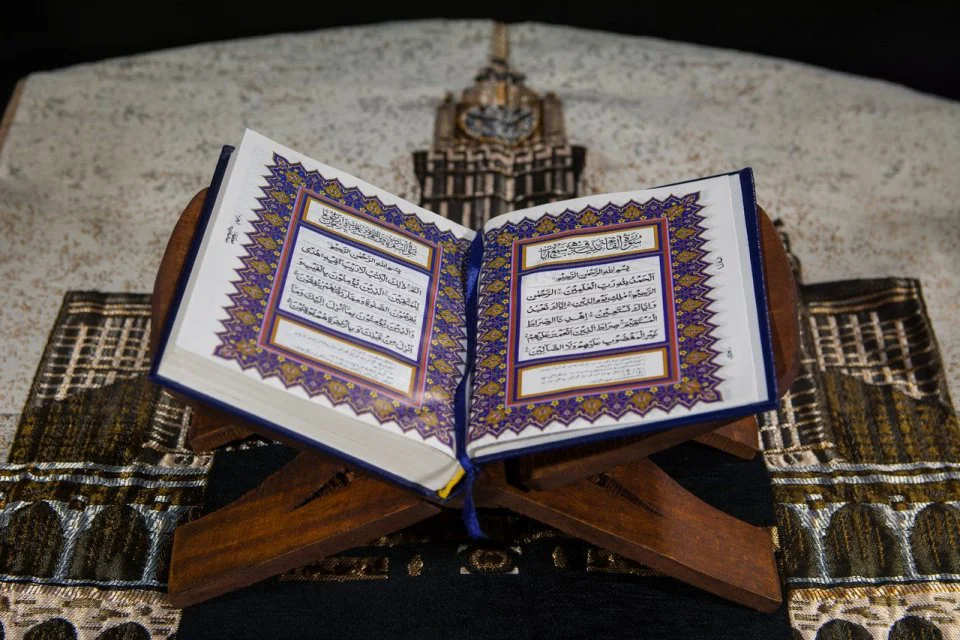Divorce is undeniably a difficult and often painful experience, particularly for women, who may face numerous challenges throughout the process.In Islam, although divorce is permitted, it’s considered the least desirable of all allowed actions because it disrupts the foundation of family life. As such, specific conditions must be fulfilled before a divorce can be justified, ensuring the decision is not made hastily or without careful consideration. Divorced women in Islam are granted rights to protect them from mistreatment, ensuring they are treated with fairness, respect, and dignity. These Islamic laws provide a framework to safeguard the rights of women (who are often the most affected), ensuring their well-being is preserved and supported.
Understanding divorce in Islam
In Islam, divorce, or “Talaq” as it’s called in Arabic, is considered the least desirable of all allowed actions, yet it’s still permitted under specific circumstances. The process is meant to be carefully considered and equitable, providing several chances for both parties to make amends and think things through.
The divorce procedure starts with the husband saying the words of Talaq, which means “I divorce you,” to his wife. This declaration can be spoken aloud or documented, but it needs to be perfectly clear and leave no room for misinterpretation. As the Quran states, “Divorce is to be pronounced twice. Then either keep [her] with honor or release [her] with kindness” (Quran 2:229). This highlights the importance of treating each other with dignity and fairness during a divorce.
Once Talaq has been declared, the wife enters a waiting period called Iddah. This period spans three menstrual cycles, or three months if she’s not menstruating. The purpose of this time is to give the couple a chance to reunite.
Women’s right to divorce in islam: Islam perspective
It’s important to recognize that Islam grants women the right to seek divorce, giving them agency and protection within this framework. While men generally hold the right to initiate divorce, women also have the right to seek divorce under specific conditions. Islam promotes reconciliation and mandates that before divorcing, a couple must try every possible solution to their problems. In order to safeguard the rights and dignity of women in particular, the Quran and Hadith both provide a methodical framework that guarantees the procedure is just, equitable, and considerate of all parties.
A woman has the right to request divorce if she experiences harm from her husband, such as:
- Neglect of her rights: If the husband is unable or unwilling to provide financial support, proper accommodation, or intimacy.
- Physical abuse or mistreatment: If the husband engages in any form of physical abuse, verbal abuse, or insults her.
- Permanent defects: If the husband is incapable of fulfilling his duties due to a permanent defect like infertility.
- Bad behavior: If the husband indulges in sinful behaviors, such as committing major sins or failing to perform religious duties.
Divorce in Islam: principles and regulations
In Islam, divorce is regulated by principles that uphold justice and fairness and consider the rights and obligations of both the wife and the husband. Divorce can be categorized into 5 various types based on its circumstances:
1. Mubah (Permissible) Divorce
Divorce is considered permissible in cases where there is a valid reason for it. This includes:
- When the wife is suffering from harm in the marriage, whether due to dislike, mistreatment, or other reasons. It is advisable to prevent harming her.
- The husband is unable to fulfill his duties, such as providing financial support, decent treatment, or maintaining a respectful relationship.
2. Makruh (Disliked) Divorce
Divorce is considered disliked when there is no need for divorce. This refers to a divorce without any genuine harm or issue in the marriage, making it an unnecessary action.
3. Mustahabb (Recommended) Divorce
A divorce is advised when it is best for both parties, such as when the wife is not performing her religious duties, like praying, and the husband cannot force her to do so.
4. Wajib (Obligatory) Divorce
Divorce becomes obligatory in the case of a moulī (a man who refuses to return to his wife after the waiting period has passed). The wife can request divorce after the waiting period has elapsed if he refuses to reconcile.
5. Mahzour (Forbidden) Divorce
When a woman is on her period or in a state of ritual impurity, divorce through *talaq* is not allowed; this is seen as an unacceptable innovation (*bid’ah*) in Islamic divorce practices. It goes against the guidelines set by Allah in the Quran.
3 main divorce types in Islam
1. Revocable Divorce (Talaq Raj’i)
This type of divorce occurs during the first or second pronunciation of Talaq. During the waiting period (Iddah), the husband has the right to reconcile with his wife. The reconciliation can happen verbally by simply stating, “I have taken you back.” This allows the marriage to continue without any new formalities or marriage contract.
2. Minor Irrevocable Divorce (Ba’in Sughra):
Talaq Ba’in (irrevocable) refers to a divorce where reconciliation is no longer possible without specific conditions. This occurs in the following cases
- If the Iddah period ends after the first or second Talaq without the husband remarrying his wife. If he wishes to reconcile after the Iddah period, they must go through a new marriage contract with a new dowry.
- If the divorce occurs before consummation (before the marriage is physically consummated).
- When the divorce is formally registered by the authorities, such as through the marriage officiant (muharrar).
- If the judge issues the divorce due to harm (e.g., physical abuse, neglect of marital duties).
3. Major Irrevocable Divorce (Ba’in Kubra)
This occurs when the husband pronounces Talaq three times. After the third Talaq, reconciliation is no longer possible unless the woman marries another man, and if that marriage ends either by the death of the second husband or divorce then reconciliation with the original husband becomes possible.
Rights of divorced women in Islam
Rights of woman after divorce in islam include:
- Mahr (Dower): The wife deserves to receive the entire amount of mahr that was agreed upon when they got married, no matter if it was paid upfront or was to be paid later.
- Remarrying After Divorce: A divorced woman can get remarried again once her Iddah is over.
- Custody of Children: Generally, the mother has custody of young children, provided she meets certain conditions.
- Inheritance Rights: If the husband passes away while she’s still in her `iddah` period, she has the right to inherit from him.
- Social Respect and Dignity: Islam emphasizes that a divorced woman should be treated with respect, dignity, and care by the community and family.
Maintenance after divorce in Islam
- During Iddah: The wife’s maintenance (food, clothing, shelter) is the husband’s responsibility during the time of Iddah.
- Pregnancy: If the wife is expecting a child, the husband has to keep supporting her financially until their baby is born.
- Mut’ah (Compensation): The wife may receive Mut’ah (compensation) if the divorce occurs before consummation of the marriage, based on the husband’s financial ability.
- Children’s Maintenance: The husband is obligated to provide financial support for the children, including housing, food, education, and medical care.
- Accommodation for Custody: If the wife has custody of the children, the father must provide accommodation for her and the children, ensuring adequate living conditions.
Who is responsible for a divorced woman in Islam
Different circumstances decide who is responsible as the following:
1. During Iddah (Revocable Divorce – Talaq Raj’i): The husband remains responsible for providing maintenance (food, shelter, clothing) for the wife, even if she is financially independent, during the Iddah period.
2. After Iddah (Irrevocable Divorce – Talaq Bain): Once the Iddah period concludes, the responsibility for the woman’s support depends on her situation:
- If she’s a mother, the children’s father has to financially support them to cover their living costs and their needs.
- If she has no children and is financially dependent, her father is responsible for her maintenance, and if he cannot provide, her brothers may step in.
- If she is without children and financially independent, she is responsible for her own well-being.
3. In Case of Pregnancy: If the woman is pregnant, her husband is required to continue providing maintenance during the pregnancy and until the child is weaned.
Common mistakes regarding divorce to avoid
- Divorcing During Menstruation or Postpartum: It is forbidden to divorce a wife while she is menstruating or in postpartum bleeding (nifas), or during a state of purity in which the husband has had intercourse with her.
- Multiple Divorces in One Sitting: Issuing multiple divorces in one sitting is an innovation (bid’ah) and has no basis in Islamic law. It is invalid.
- Leaving Husband’s Home During Iddah: During the Iddah period, the wife must remain in the husband’s home unless there is an agreement otherwise, as she has the right to financial support and accommodation during this time.
- Returning After Irrevocable Divorce Without a New Marriage Contract: After an irrevocable divorce, if the Iddah period ends, the divorced muslimah cannot return to her husband unless a new marriage contract with a new dowry is established.
- Reconciliation Without a New Contract After Divorce Before Consummation: If the divorce occurs before consummation, reconciliation requires a new marriage contract and new dowry.
Learn about Islam with E-hoopoe
E-hoopoe provides a comprehensive online Islamic course designed for individuals eager to deepen their understanding of Islam in a meaningful and accessible way. This course covers main elements of the religion and its application in everyday life. Students can learn about Islamic teachings at their own pace and from the comfort of their own homes thanks to the flexibility of our online sessions. The well-organized classes, which are conducted by professionals, are engaging and informative, and they offer students precious guidance and tips. For anyone seeking to understand the real meaning of Islam, this guarantees a rich, engaging, and incredibly fulfilling educational experience.
Conclusion
In short, divorce is a sensitive topic in Islam, and it is necessary to understand one’s rights and obligations. Divorced women in Islam are given a clear set of guidelines that protect them, give them back their dignity, and treat them fairly. From maintenance during the Iddah period to the right to remarry, Islam places a high value on women’s welfare and assists them in navigating the challenges of divorce.
E-hoopoe offers enlightening courses designed to help you navigate a variety of life circumstances. If you wish to learn more about important Islamic teachings, enroll with E-hoopoe now to acquire a thorough understanding of Islam.










